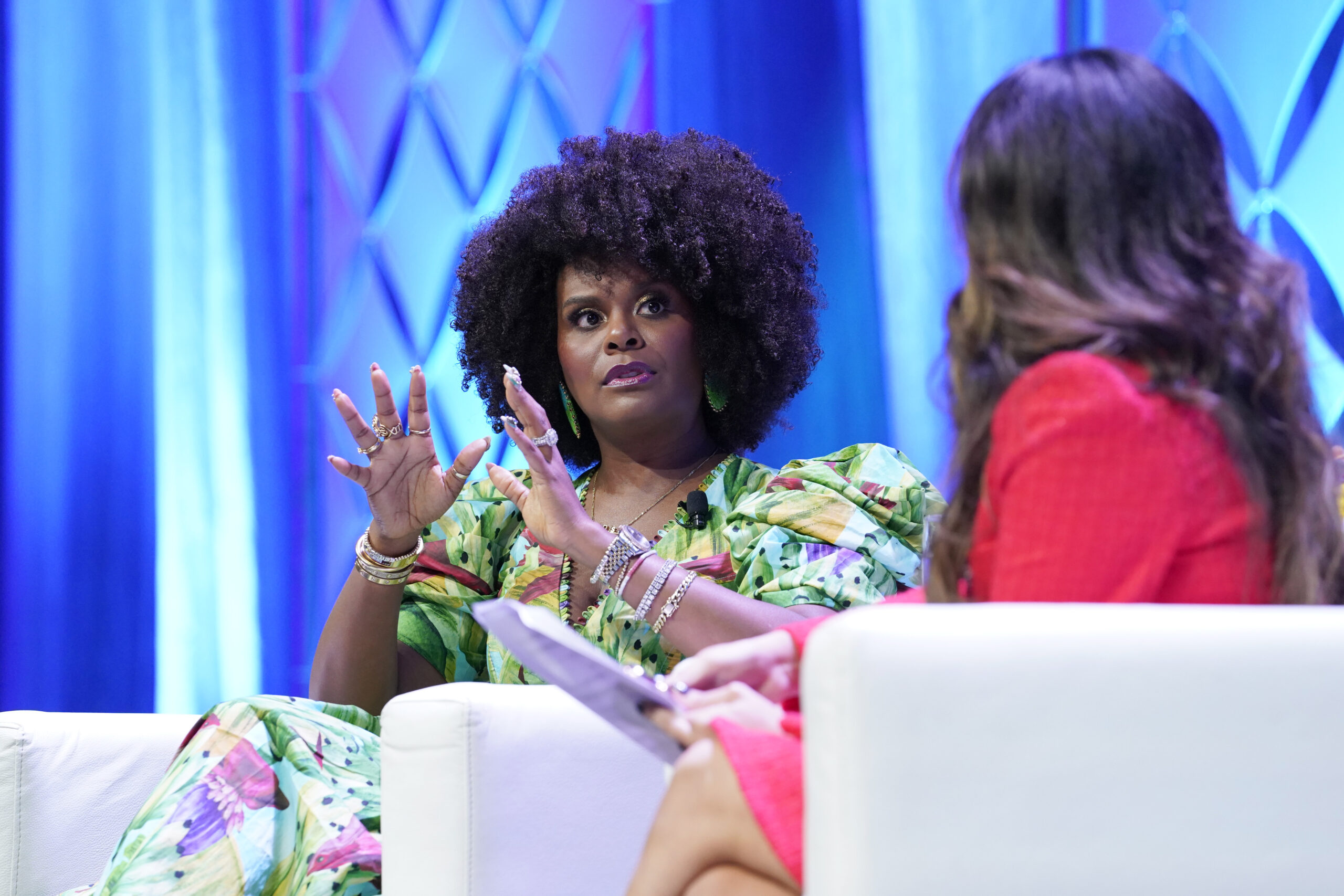Many people across the internet regard Tabitha Brown as a positive, light-hearted, auntie-like figure. From her flavorful vegan recipes or time sensitive affirmation videos, the Emmy-winning actress and entrepreneur has built her platform around Black joy and community. However, Brown is now in the middle of a conversation and controversy she didn’t expect: the ongoing boycott of Target.
Earlier this month, Brown responded to criticism for supporting Target during the boycott with a heartfelt Instagram video. She gave a heartfelt response with grace and clarity, making it known she’s not supporting anti-DEI policies, but adding some nuance on the business side of supporting Black-owned businesses.
“Contrary to whatever the world might tell you, it has been very hard for Black owned businesses to hit shelves. Which is why it’s such a big deal when we do…It’s definitely heartbreaking to feel unsupported, however I am in business in multiple ways with Target, Walmart, and Amazon,” Brown can be heard saying in the video.
Why Are People Boycotting Target?
The Target boycott began after the company made moves to scale back its diversity, equity, and inclusion initiatives. Obviously in the age of America right now, this action didn’t sit right with many in the Black community.
As Target distanced itself from DEI efforts, including multicultural campaigns, customers matched energy and distanced themselves from supporting the retailer altogether. By no longer shopping at Target, Black people were aiming to push the brand back toward accountability and realizing just how vital the Black dollar is.
“For the week beginning March 31, Target’s store traffic was down 7.9 percent year over year, according to the foot traffic software site Placer.ai. That was after a 43 percent increase in store visits in the previous 10 months leading up to December 2024,” Newsweek reported in April.
Black Creators Are Feeling the Impact
Although the decision to cancel Target sounds good initially, there’s complexity to the boycott. The most important aspect is the consequences Black creatives and entrepreneurs; especially those who’ve found success through partnerships with Target, are experiencing.
Here’s where Brown comes in, as she’s one of the few public figures speaking openly about it.
“If we all decide to boycott and be like ‘no we not spending no money at these organizations’… so many of us will be affected. Our sales and our businesses will be hurt,” Brown goes on to say in her viral Instagram post.
Users flocked to Brown’s comments, with some disagreeing and others sharing their appreciation for the message.
“As much as I love you this is not the right message. If we continue to buy regardless of whose product it is they will never ever take us seriously!!!! Plus buying any product DEI or not still lines their pockets with profit!! It is very unfortunate to all the DEI brands being sold at these major companies but we need to stand up for what we believe in!!! “ part of one comment read seemingly disagreeing with Brown’s stance.
Another comment went another route, reading, “It’s making so much sense Tab, we will need to be smart and play the game.”
How Boycotts Harm the People They Aim to Protect
Brown sells her products at Target, from her pink-hued Donna’s Recipe haircare line to her colorful kitchen essentials. In her video, she explained that supporting Black-owned products means more than just getting them into brick-and-mortar stores—it also requires investing the money to create alternative plans.
According to Brown, it costs to remove your product from the shelves. You need to cover additional costs to store the products and run your own shop. Not supporting Target as a whole directly impacts Brown’s products and other Black entrepreneurs, too.
In fact, Brown’s not the only Black business owner to spew the same sentiment, so her video wasn’t really self-serving. Beautiful Curly Me, a Black-owned haircare line available at Target directly commented under Brown’s video.
“We agree! Beautiful Curly Me just launched at Target 6 months ago and it was such a long road to get there. Our 13-year-old CEO pitched the buyers herself three times at 10, 11 and 12 years old before we finally made it in. We are self-funded and on the same shelves with billion dollar companies. This news is frustrating but we agree we have to be smart and support black-owned brands more than ever to help us stay on shelf!” part of the brand’s official IG account caption read.
Melissa Butler, the founder and CEO of makeup line The Lip Bar, made a similar video on TikTok.
“As much as yall are upset, think about how upset the brand founders are who were blindsided. Think about the fact that we are actually in business with them,” Butler, whose products are also on Target shelves said.
So, What’s the Alternative?
Calling out corporations when they intentionally demean DEI is necessary. However, it’s also important to think long-term. As Brown reminded us, there are ways to hold brands accountable while still showing up for the community.
Brown encouraged her audience to continue supporting Black-owned businesses; whether they’re on Target shelves or not. That means buying directly from creators’ websites, sharing their work, writing reviews, and putting money behind what matters. On the other hand, if you do shop at Target, Brown says to be intentional. Seek out the Black authors, artists, and businesses because your dollar makes a difference.
The Overall Bigger Picture
Brown’s message was seemingly made to remind the community of the importance of boycotting with a purpose and knowing your “why,” behind it.
“Family let’s not fight… I know we are all hurting. But we didn’t cause this anger. This is the time for unity and support of each other to be stronger than ever before. When we fight each other they take note and win! We have a right to be ANGRY ! We have a right to BOYCOTT! But what’s right is doing it TOGETHER!!,” part of her Instagram caption read.
